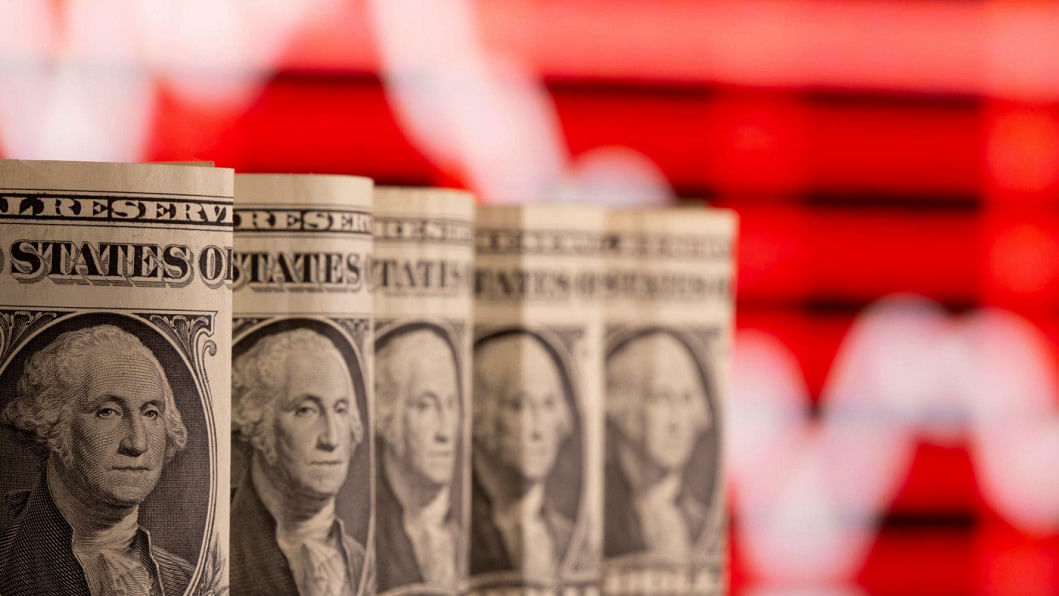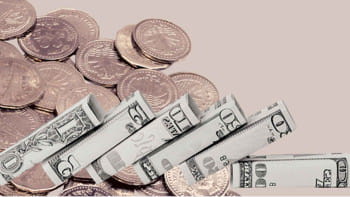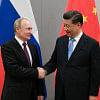When currency, not arms, is the weapon of choice

After a relative calm since World War II, we are facing a situation in Ukraine that can flare into a catastrophic nuclear conflict. But it is not only the hard power of hypersonic missiles and nuclear warheads that can be used to score victories. Today, we have much less lethal, yet no less stealthy or tactically inferior weapons – these are the monetary instruments for sinking economies through gradual asphyxiation and disabling the financial capacity of opponents.
The use of money for good and bad has a long history, going back to Byzantine solidus – the dollar of the Middle Ages – which projected the might of the eastern Roman empire. The monetary power gradually shifted to silver of the Spanish and later to the British pound sterling as the world's most valued reserve currency.
The delinking from the gold standard by President Richard Nixon more than five decades ago was the beginning of the new era of the US' financial dominance. The gold standard was replaced by the dollar as the fiat currency, and all oil deals were denominated in dollars.
The emergence of the mighty dollar was backed by gold, and the hegemonic transition in the aftermath of World War II that came with the rise of American geopolitical and military leadership of the Western world. The generous USD 15 billion credit by the US to the war-devastated European countries for reconstruction under the Marshall Plan of 1948 helped in this process.
Today, the dollar has unparalleled supremacy. Almost all imports and exports are denominated in dollars. In addition, billions of dollars are transacted globally in the form of small private transactions, such as for travels abroad and repatriation of savings by millions of workers overseas. International transactions between businesses, countries to settle contracts, repay loans – all require dollars. Countries have to keep enough dollar reserves to pay for their import needs for at least six months or face the danger of default, poor credit ranking, and bankruptcy.
Globally, USD 12-13 trillion is kept as reserve, much of which is kept with the Federal Reserve System of the US. These reserves work to the advantage of the US, which can (and does) run large budget deficits and take national loans equal to many times its GDP without much concern for bankruptcy.

The dominance of the dollar and the hegemonic power which supports it have emerged as a sore point in the rising strategic competition to determine the global financial architecture.
Jose Miguel Alonso-Trabanco, an international relations professional, notes, "In this game of determining suitable financial architecture, monetary assets, control over resources are weaponised as instruments of coercion, manipulation, disruption, subordination and conquest. The realm of money is now at the forefront of rivalry for domination." The US can and often does weaponise the dollar to support and extend their dominance. Such sanctions can be tolerated to a certain extent, but beyond that, it can backfire through powerful, destructive measures.
Unlike the hard power of missiles and war machines, financial power can be used for both construction and destruction, from building alliances, to gradually weakening the economic power of countries. It can be used for patronage or denial, to gradually snap the energy of the "disfavoured." Financial power, coupled with another lethal weapon, the "food diplomacy," can cause havoc on countries at the receiving end.
Large and small nations can be subjected to its squeeze in different ways. For example, Bangladesh, during its immediate post-liberation period, was subjected to sanctions for selling jute to Cuba, leading to the deaths of thousands of people by starvation through denial of food delivery.
In the context of the current conflict between Russia and Ukraine, the sanctions imposed by the US and the West focused on key elements of financial transactions, choking the Russian economy out of the freedom of exchanging goods and services.
What impact are these sanctions expected to have on the Russian economy? It is difficult to assess at this stage. Russia, with about USD 630 billion in foreign exchange and gold reserves, was in a comfortable situation in the pre-war period. The impacts of sanctions are reported to be negative; it is observed by some that in February-May 2022, industrial production went down by nearly 70 percent, imports reduced by 50 percent, and debt portfolio increased to USD 300-400 billion.
The Russians countered to stay afloat by denominating exports and imports in terms of rubles, adopting a quasi-barter system among its allies, or with countries dependent on Russia for its oil and gas. But the ruble strengthened, and Russia had to take measures to weaken the ruble for fear of adverse impacts on exports.
So far, Russia is doing not so badly. But how long it can sustain the persistent pressure from the US and its Western allies remains to be seen. It could be a close call for a showdown.
The key to this lies in the hands of China, another mighty economy with vast financial and commercial reach as well as hard power. It holds huge financial reserves (more than USD 3 trillion and 1,948 tonnes of gold). Allied with China, Russia can deliver a heavy counterpunch.
Coercive weaponisation of financial vectors does not involve bloodshed, but it can still inflict substantial damage in terms of hunger and poverty, not necessarily on the target countries, but as unintended "collateral damage" on innocent "bystander" countries. Already, the rise of inflation and potential food shortages are sending ominous signals. Low-income countries around the world can only wait and see, and build up their own defences to the best of their capabilities against the unwelcome outcome of an ugly bullfight.
Dr Atiqur Rahman is an economist, former adjunct professor at John Cabot University in Italy, and former lead strategist at IFAD.

 For all latest news, follow The Daily Star's Google News channel.
For all latest news, follow The Daily Star's Google News channel. 










Comments